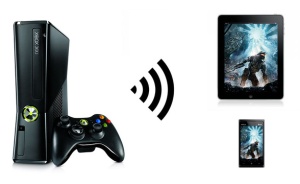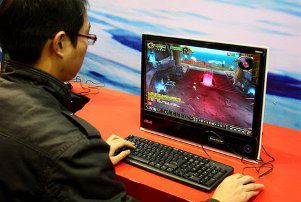Online brain games are increasingly popular, keeping users active as they solve puzzles and answer questions. Games like Lumosity, My Brain Trainer, Fit Brains, and Happy Neuron have seen a rise in use perhaps due in part to social media site exposure and accessibility. This may not seem surprising given the technological prowess of the current generation which has had the internet since infancy. But what may surprise you is that it is not this generation who comprises the fastest growing segments of the brain game market.
It turns out that adults over the age of 50 are actually becoming more and more involved as they seek to improve their memory and slow the aging process and the toll it takes on them. Computer games are not just for kids now; the adults are taking over. Let’s take a look at some of the popular brain games and whether they may be useful for improving cognition, or are simply a way to kill some time while having fun.
Most of the research available on the various brain games indicates that they function in about the same way. The main exception seems to be Fit Brains, which has a slightly better reputation in the academic world as it was designed by a respected clinical neuropsychologist, Paul Nussbaum. The premise is that the games and exercises include feedback which charts progress, and supplementary materials about brain health and improving mental activity.
For years, people have attempted to create activities to improve memory (particularly fluid memory) and to increase reasoning power and skills. Some doctors and researchers have argued that these exercises are futile and that one cannot improve one’s intelligence. Some have argued that the type of memory associated with this intelligence is biological and cannot be environmentally boosted. Most will cite obscure sources to support their arguments. However, clinical research seems to contradict this.
On a number of occasions, when doctors have told a patient that they will not be able to improve their memory or intelligence, they’ve been proven wrong. Through repetitive exercises and skill building techniques, improvement has been noted. So why is it that so many strongly oppose the idea? What is the ‘main beef’ that those who disapprove of memory building games have with the practice?
The strongest opponents of brain games seem to be people who base their arguments on unfounded allegations. Reading comment boards on the websites related to Lumosity or Fit Brains reveals that people who don’t like the games are people who felt that they didn’t receive any benefit out of it. I suspect that if you probed into that further, you’d discover that they began the process with doubt and did what they could to back up their suspicions. Sometimes, you find what you expect to find.
What it boils down to is a basic inability of anyone to fully understand the human brain. Though many scientists have spent their lives studying human brains, they seem to develop as many questions as they do answers. This makes many researchers uneasy, since the purpose of science is generally to answer questions that have been raised. The human brain is so complex and full of so much potential, it’s hard to box it up so that it is easy to understand. There will probably never be a day where human beings cease to amaze each other.
Do brain games work? It’s hard to say they don’t with any certainty. Any exercise in keeping the brain active tends to have positive effects. The brain is a muscle in a sense; the more you work it out, the more useful it becomes. If you learn something but never practice it, you’re more likely to forget it, no matter how much time you spent learning it in the first place. The adage “practice makes perfect” should not be limited to mechanical activities. As you continue to ‘train’ your brain, it makes sense that it would continue to develop and that your memory and intelligence capabilities might improve.

